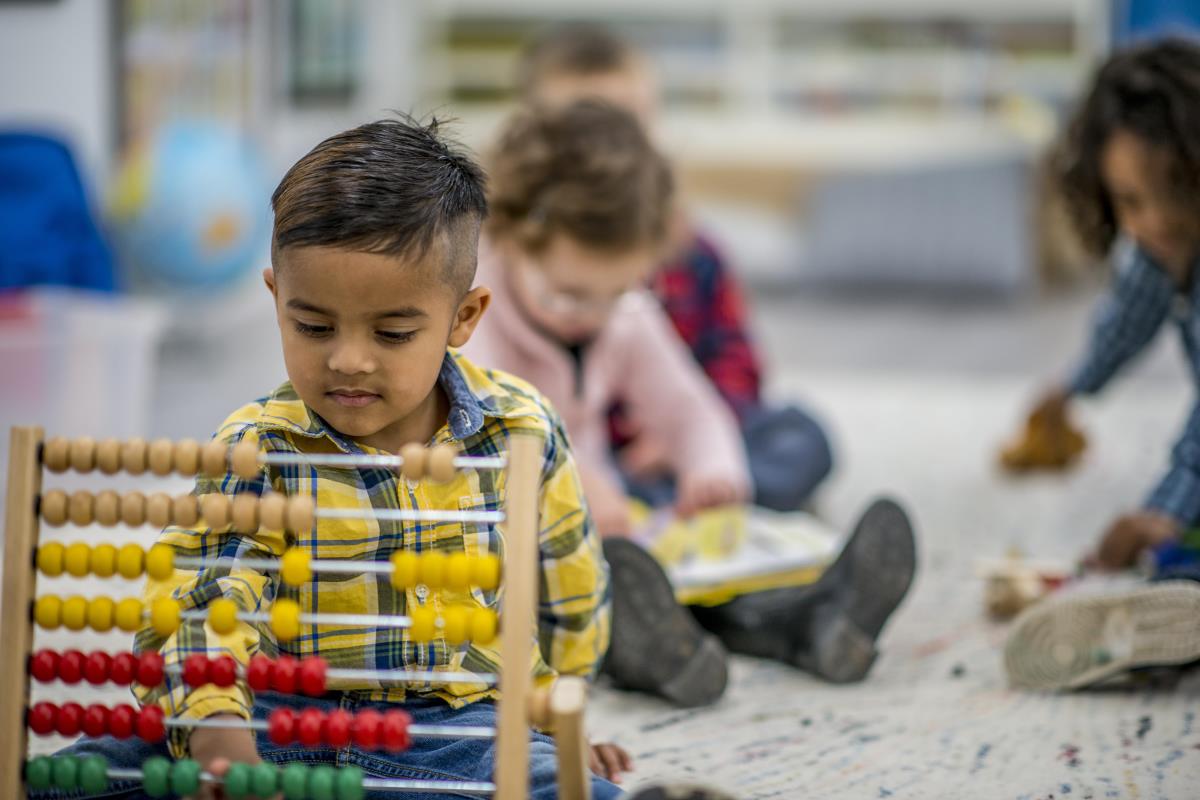Preparing Your Child for Nursery

We look at what you can do to support your child in the run-up to make their first transition into nursery as easy as possible.
Starting at nursery is a big step forward and is another change of routine for little ones. There'll be new things to learn and new rules to follow, as well as potentially new and old friends to meet and have adventures with.
Even so, your child may feel nervous and anxious - and you may do too - as they prepare for the change but there are lots of things you can do to help them before they start. The following ideas should help make the transition easier.
Let's pretend...
To get your child used to the idea of nursery, try play-acting the different things involved. Everyday activities you can pretend to do include saying goodbye to each other, and hello again too (for when you see them again). Children love routine - and routines too - so getting them used to a goodbye sequence now can help them better understand and be prepared. You can also act out other practical steps such as taking off and hanging up a coat and putting it on again - and also answering their name on a register - perhaps you can persuade other children, adults or even pets in the household to join in as their names are read out! You can also practice sitting nicely and lying down to take a nap. Reading stories and singing songs together is also a great idea and you may well already have some favourites that you both enjoy.
Put them in the picture
Why not read some books together which show how others adapt to nursery? Most children like to hear the same stories again and again, so with such books you can introduce and establish reassuring stories. You can talk about the story together and how the characters are feeling. Examples of picture books you could try include Spot Loves Nursery and I'm Starting Nursery: A Pirate Pete Book (Pirate Pete and Princess Polly) although are many others.
Thrills, spills and new skills
Once your child is at nursery, mastery of - or at least some practice at - certain basic skills will be really beneficial. Some of these may already be things your child can do - hanging up their coat, removing a backpack, taking out a lunch-box, fastening shoes - others may need a little more work. To get them used to doing things efficiently, you can have a 'pretend' race to see who can do the task first.
Listen for their concerns
It's only natural that your child might be concerned about starting nursery. Be sure to listen to any questions they ask or fears they have. They may be worried about what the teacher will be like, or even whether you - or whoever is to collect them - will remember to be there! Encourage them to share what they are feeling so that you can help them to think through how to deal with any worries. Reassure them that it's normal to feel a little scared and that lots of people can feel that way.
Look out for non-verbal messages
Given that your child may not be fully able to explain what they are worried about, do watch for non-verbal signals. Outside of your pretend play, you may spot your child acting out their concerns in other ways: perhaps by becoming more clingy, or withdrawn, or even being more aggressive. Sometimes there can be some behavioural regression - a potty-trained child may start to have toileting accidents, or they may want you to help them dress or feed themselves even though you thought you were beyond these stages. Try not to be too frustrated by situations like these should they occur, it won't last forever, and negative attention can just 'feed' the behaviour, rather than let it disappear naturally.
The final countdown
Ahead of the first day – ideally a week or more before your child is due to begin - start practising your child's new bedtime and morning routine, especially if e.g. they have been going to bed later during the lockdown. It's especially important that they get a good night's sleep before that first day, but - unless they really want to talk about it - don't obsess or over-talk about it. Keep things nice and natural, soothing and relaxed.
Try to make it a 'good' goodbye
On the first day, now's the time to put your 'saying goodbye' practice into action. Remember to keep it positive - and try not to turn back once you've left, since it may only reinforce the message that your child will only be okay if you are there with them. Be assured that nursery staff will be used to every situation and will do all they can to ensure as seamless a transition for both you and your child.
It's a big step forward!
Your child – and you - may find the idea of being separated really hard, or you may be excited about this step for both of you, or something in between! However you feel about it, remember that your child will succeed with your support, nurturing, encouragement and patience.
And finally...
The above suggestions are just that: suggestions. There is no right and wrong way to go about it, so don't be surprised - or upset - if your child trots off happily without so much as a wave goodbye, or needs a little extra support to settle in.
However you go about preparing your child for nursery, try to do so in a relaxed, fuss-free way so that your child is excited - rather than worried - about what lies ahead.





